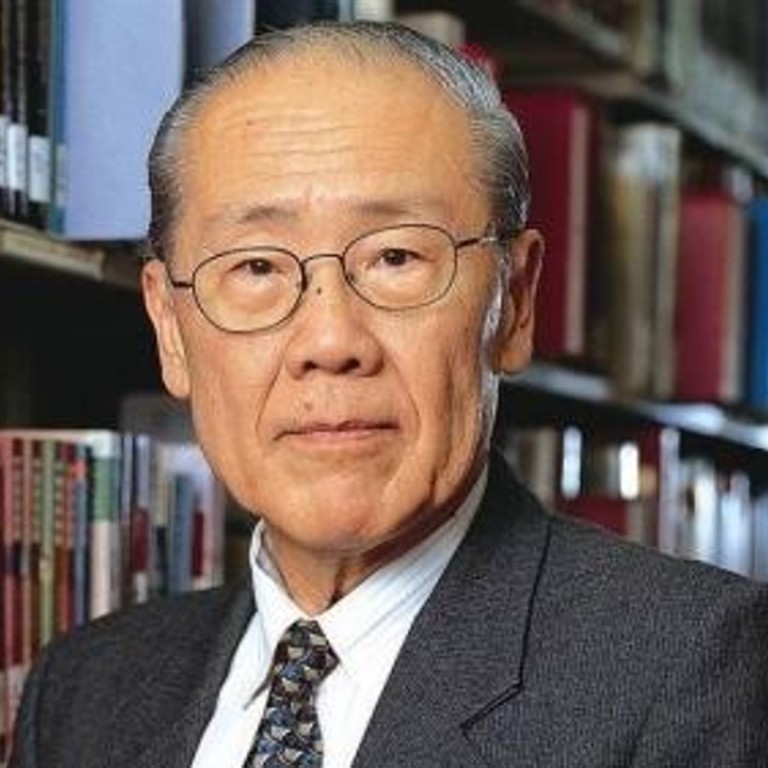
Sun Yat-sen to Mao Zedong, I watched the birth of a new China: the Wang Gungwu memoir
In an extract from his memoir ‘Home is Not Here’, one of the world’s foremost scholars on Chinese civilisation recalls visiting the country as a student – and witnessing the birth of Mao Zedong’s China
Editor’s note: Wang Gungwu is a historian well-regarded in Asia for his study of Chinese civilisation and his reflections on the Chinese diaspora. Born in 1930 in Surabaya, Indonesia to immigrant parents – a Chinese schools inspector father and a mother from a family of literati and businessmen, he lived, studied and later worked across several countries and territories, including Hong Kong where he was vice chancellor of the University of Hong Kong. ‘Home is Not Here’- is his first attempt at his own life’s history, as it traces his early years in Ipoh, Malaysia, and a brief return to China in 1947 for him to study at university, before returning back to Southeast Asia. Woven with the history of China is the arc of his own life story, trying to figure out the meaning of being a minority in one country, feeling affinity for another and making the best of the multiple identities one is forced by circumstance to embrace. He writes simply, showing a prodigious memory of vignettes from various eras, keeping faith to his true calling to honour the past because it explains so much of the present and provides lessons for the future. Here are two edited excerpts, on that brief stay in China in his youth and the beginning of the People’s Republic of China under Mao Zedong.
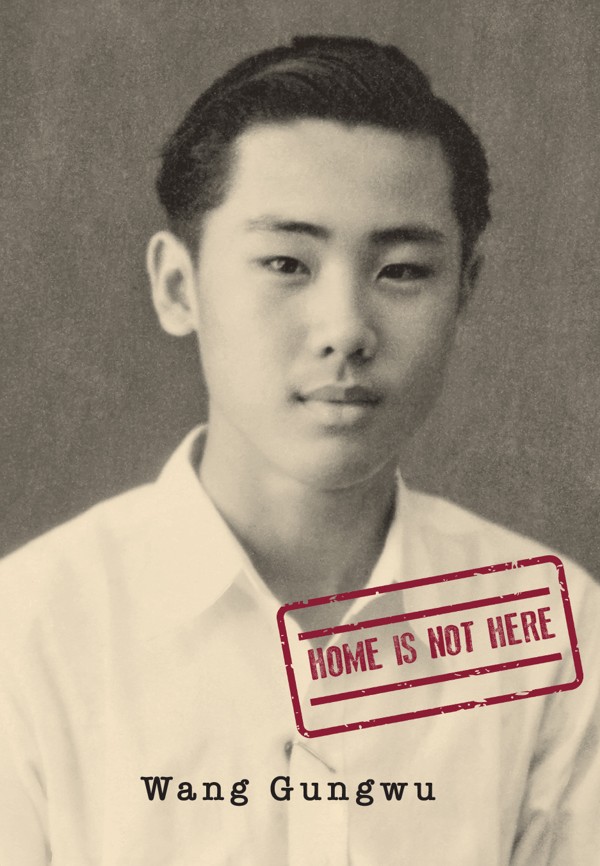
“When we arrived in Shanghai, my father avoided attending his cousin’s wedding party by taking me with him to Nanjing. It was only a short train journey. He called in at the High School where he had been offered a job as an English teacher. This was a school established by his alma mater, the Dongnan or Southeastern University, now the National Central University, the same one that he hoped I could get into. The university had followed the central government to Chongqing in 1937 when the Japanese forced Chiang Kai-shek to evacuate Nanjing. After eight years of refuge, it had just begun to settle back on its old campus on Chengxian Street. When we visited it, we were told that the university was now much larger and there was the medical school campus in Dingjiaqiao where the freshmen would spend their first year.
Wang Gungwu, the scholar who helped the West understand China and the ‘New Asia’
My father had me registered for the university’s entrance examinations and wanted to make sure that I understood what was required. He knew that the examination was a challenge to me because I had gone to an English school. He knew I could not do well in the science paper because I had missed many years of formal schooling, and Anderson School had offered too little on science subjects. Furthermore, I was not confident with technical terms in Chinese, having studied the subjects in English. In any case, he had me apply for the Department of Foreign Languages, where the English language would be key. He thought that, if I did well in that, all I needed was to pass the other papers. His worry was the paper in Chinese. The National Central University was renowned for its emphasis on Classical Chinese and, given the high standards required in this subject, he was not sure that I would do well enough.
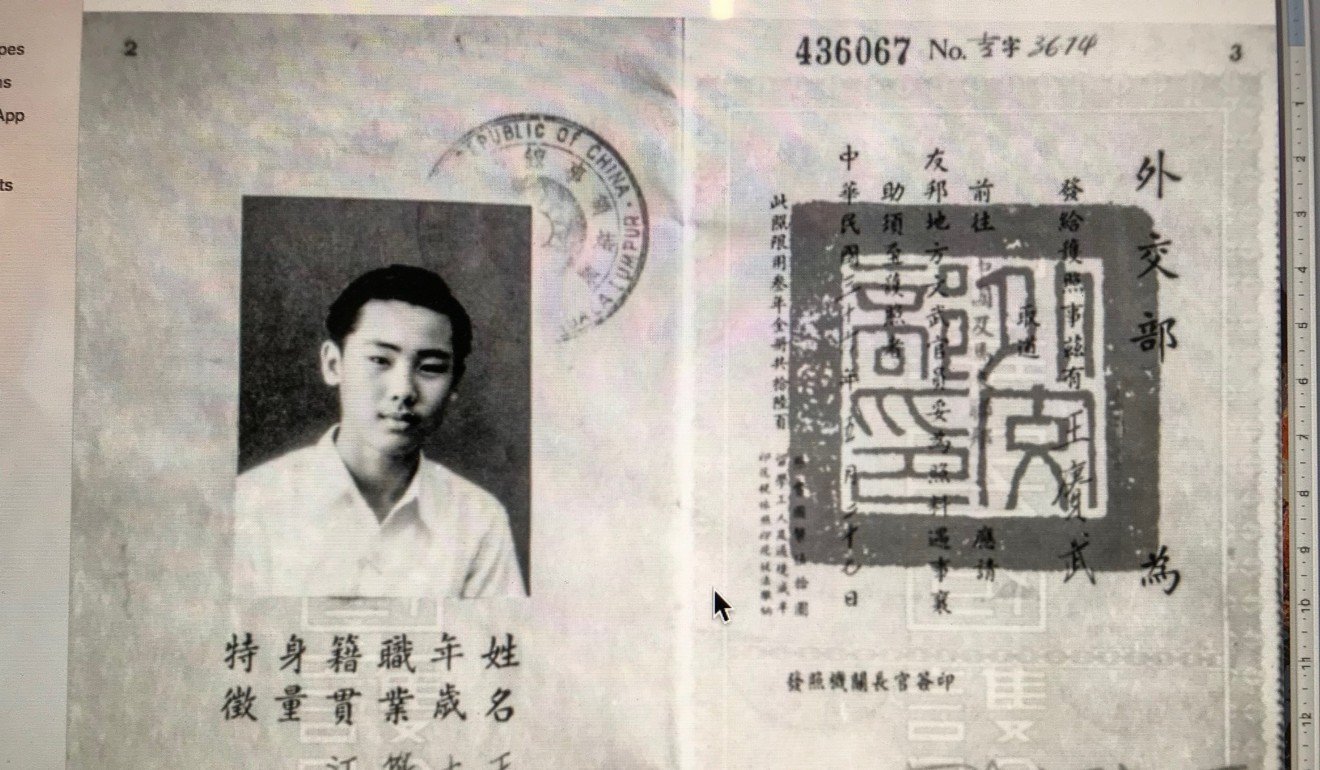
Nanjing was busy with people adjusting to the new conditions after nearly eight years of Japanese rule. The organs of central government had returned from Chongqing. The economy was suffering from severe inflation and everyone was desperate to find ways to secure their livelihood. My father talked to me about the widespread regret among the people that the two major political parties could not agree to a coalition government. Everyone had hoped for peace, but the People’s Liberation Army (PLA) had marched into Central Manchuria with the support of Soviet forces, and the national government was determined to eject them. My father explained why, in early 1946 and less than a year after the end of the war, this civil war was seen as unavoidable. Despite knowing that, he had been determined to come home because he was hopeful that the national government would win. Now the fighting in northern China was fierce. It was obvious that the PLA was popular in the rural countryside and much more formidable than expected.
My father had not been to Nanjing for over 20 years. The city had changed a great deal. He was tense about the mood people were in and seemed undecided what he should talk to me about the current state of the nationalist government. Nevertheless, he had broken his silence about the politics of China.
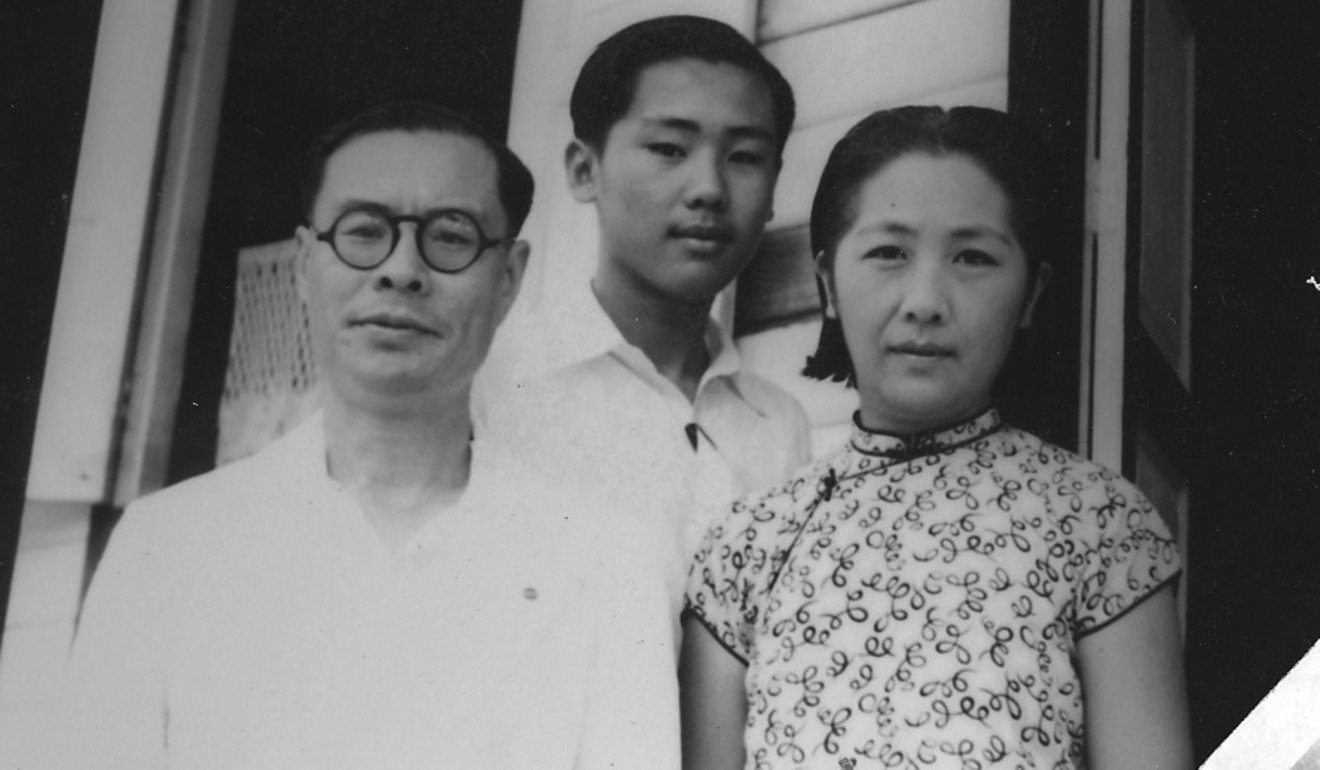
After dealing with the chores he needed to do, my father took me to visit the Sun Yat-sen Mausoleum. This was built years after he left China and he had never seen it himself. He was also eager for me to connect with the revolution that had offered a new national vision for China during the years when he lived abroad. By telling me about Sun Yat-sen, who made Nanjing his provisional capital in Nanjing in the first months of 1912 and had asked to be buried there, my father wanted his foreign-born son to understand how he felt about missing the new regime’s few good years after 1928. I had already heard a lot about the revolution of 1911. Standing at the foot of the mausoleum steps, I remembered how I used to boast to my friends in Ipoh that the date of the Wuchang uprising, October 10, was one day after my birthday.
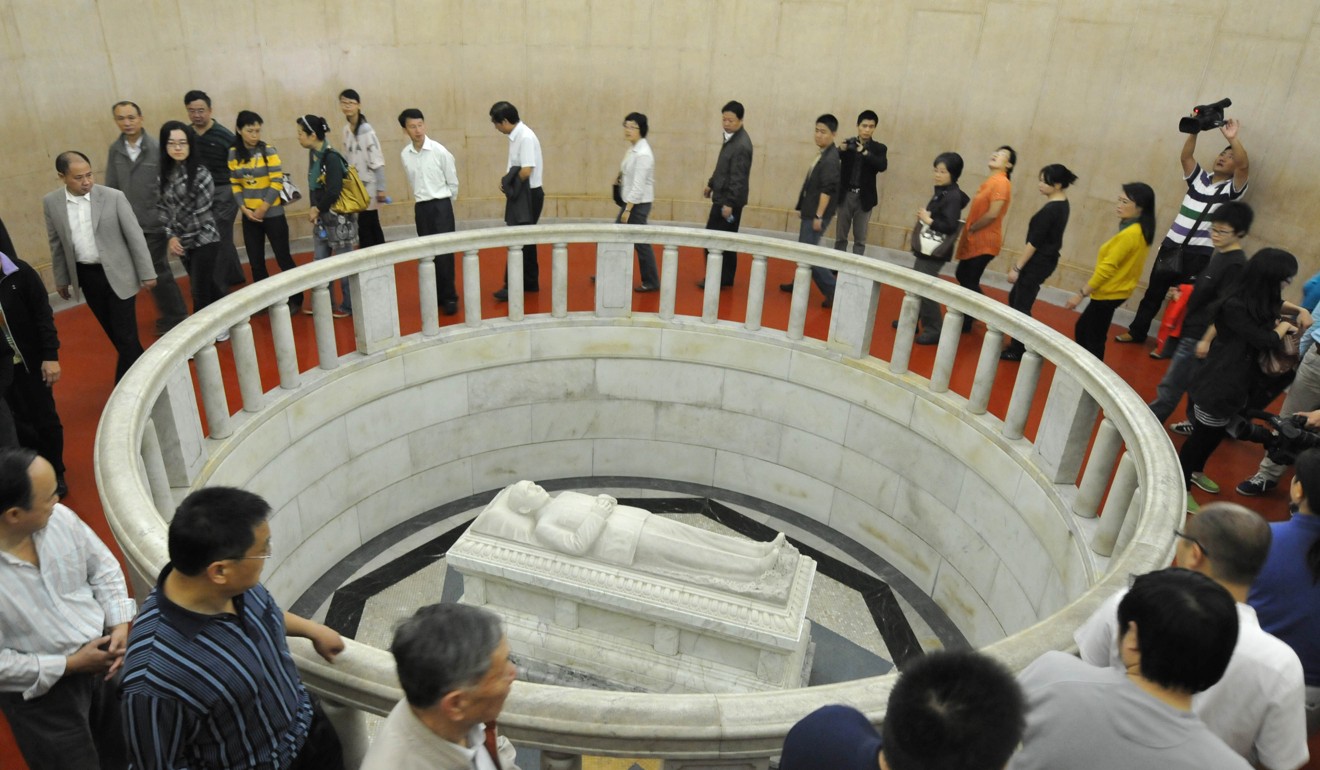
The side of the Zijin (Purple) Mountain leading to the mausoleum was a steep climb. My father showed me how to pay proper respect at Sun Yat-sen’s tomb. The walk up and my sense of awe reminded me that I was born two years after the Kuomintang government under Chiang Kai-shek was established and my name is spelt the way it is because my father had followed the official romanisation adopted by the Ministry of Education of this new government. Otherwise Gungwu would have been Kengwu or Gengwu. My father began to tell me that Nanjing was not only the new national capital but was also to become the modern centre of an ancient Chinese civilisation. And, standing in front of the tomb, he made me feel that Sun Yat-sen’s dreams for a united China was at last being fulfilled. I knew from that moment that those dreams would always be relevant to my life.
The thought nudged me to think of studying with greater purpose. I must get to university as planned. But my options were limited and relied on my strength in English to gain a place. Of course, this was not so bad because it would allow me to pursue my love of literature, something my father had encouraged. My mother remained unimpressed. She thought that, with my foreign language skills, there must be better ways to serve the country.
The trip to the mausoleum led my father to talk about modern history, something new to me. Now, standing before the tomb and hearing my father tell the stories as he saw them, everything seemed to sink home. This was real and we were part of the unfolding story, with Nanjing once again the capital that Sun Yat-sen wanted for the new China. Nothing that day could have prepared me for what I was to experience a few months later. With my father’s words still fresh in my mind, I would soon see the picture he painted turning colour, from bright to darkness. After being a student for a few months and wandering around Nanjing with my friends, I began to see a corrupt and demoralised government unravelling before my eyes.
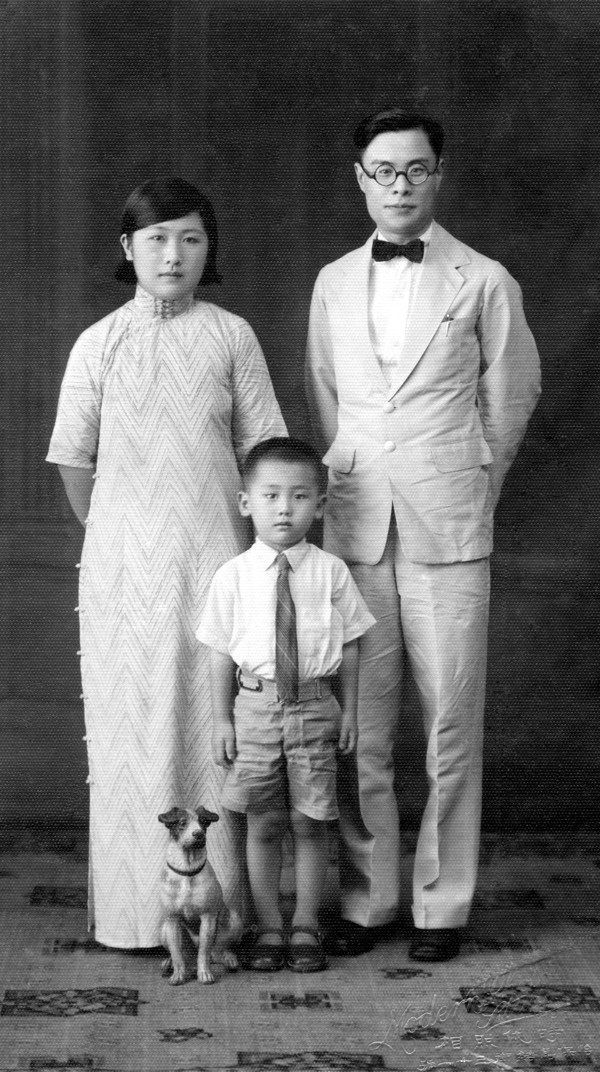
The next day we walked the streets of Nanjing city and my father continued to talk about the 1911 revolution. In his view, that had given the Chinese people the opportunity to reassess their heritage and develop new ideas and institutions to catch up with the progressive West by opening their minds to new kinds of knowledge. It was not going to be easy, and the future was now connected with the civil war going on around us. I knew enough Chinese history to understand that winning the Mandate of Heaven required victory on the battlefield. The two sides were therefore fighting each other in the name of revolution for total control. That was the original meaning of gé mìng, which is now used to translate revolution.
My father reminded me of the photographs of Sun Yat-sen in many buildings in Ipoh that were accompanied by his famous words, “the revolution is not yet successful, comrades must keep up the struggle”.
In Malaya, my father had not wanted me to be excited by that part of China’s modern past. During the years he was preparing me to return to China, he distinguished between that gé mìng and the military arm of the Malayan Communist Party’s call for a war to liberate Malaya. The MCP took as its model the Chinese Communist Party (CCP) that was at war with the national government in Nanjing. Looking back, I realise how shallow my understanding was. Not many months after my father spoke about Sun Yat-sen, I began to doubt if the revolution ever succeeded and wondered whether the next one might have a better chance of success under the CCP. I began to ask if the Chinese people would have a better chance for peace and predictability if that party were given a try.
I began to doubt if the revolution ever succeeded and wondered whether the next one might have a better chance of success under the Communist Party
My father took me to see places that he remembered. Some were sites dating back to the time when Nanjing had been the capital of kingdoms like Wu of the Three Kingdoms period, the four Southern dynasties of the 5th and 6th centuries and briefly that of the Ming a thousand years afterwards. We passed places that more recently, in the 19th century, had been used by Hong Xiuquan and his fellow Christians when Nanjing was the capital of the Taiping Heavenly Kingdom. He also pointed out places associated with the puppet regime of Wang Ching-wei under Japanese control.
The most prominent stories for people in Nanjing were probably those concerning the progress of the ongoing civil war. The daily newspapers kept telling us that the government was determined to crush communist rebels and each bit of success was reported with words of encouragement. These were clearly posted from the nationalist point of view, and my father alerted me to alternative views about the challenges facing the government.
He also cautioned me about strong measures against Nanjing university students a few months earlier, including police action on campuses like National Central University, and he told me that several student leaders were in jail. The main issues were economic, about hunger and the inflationary conditions, but students had also demonstrated against the government’s dependence on American support in fighting the communists, including anger at an American soldier’s rape of a female student in Beijing. By the summer of 1947, a ban against demonstrations in Nanjing had brought some peace to the streets, but there were still reports of union-led workers seeking higher wages to counter the high rate of inflation that troubled everyone’s daily lives.
Talk about civil war was not new to me. Ever since my parents began to prepare me to return to China, the Chinese people seemed to have been in an unending state of war. My parents had grown up with civil war being fought close to their respective hometowns in Jiangsu province, and the resumption of civil war in 1946 was unsurprising to their generation. It was more a matter of regret that no other way had been found to resolve differences, and that a national government dedicated to post-war reconstruction proved to be impossible. My parents clearly shared that feeling, but did not talk to me about who they thought were responsible for starting the fighting again. When I arrived in Nanjing, I thought that the nationalists had a clear advantage and would ultimately win, but I soon heard about corruption in high places and how the government paid its soldiers poorly and was unable to inspire them to fight against the People’s Liberation Army. Even more disturbing was the picture of a deeply unhappy society plagued by rising prices that rendered the currency almost worthless.
I had experienced inflation during the last year of the Japanese occupation in Malaya, when rice had become very expensive and many people survived eating sweet potatoes or tapioca. Many people used raw greasy palm oil for cooking, and the price of fresh vegetables was rising daily. We were lucky to be living with a family whose workers were able to put edible meals on the table, but we were conscious that the Japanese were steadily printing more currency notes, and their value was falling.
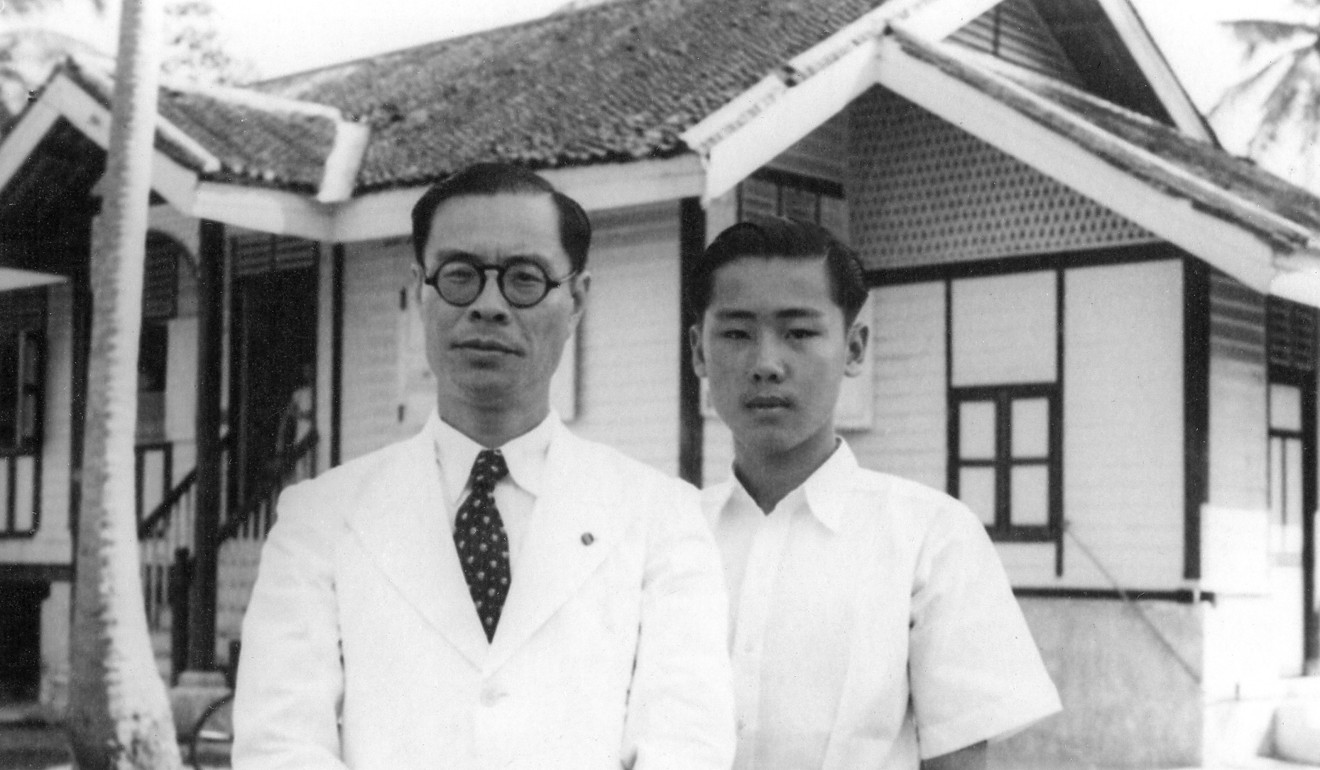
I knew something about the subject from monitoring short-wave news broadcasts in English, which explained that Japanese money would not be accepted after the British returned. I also learnt about currency depreciation and its impact on daily life, lessons that proved useful in Nanjing. I could understand how my parents were able to survive in Nanjing on my father’s low salary and still help his family in Taizhou. He had savings in Malayan dollars and was wisely changing his money a little at a time to keep up with the falling exchange rates. He taught me to do this too. After he returned to Malaya, he sent me a draft each month that was the equivalent of HK$15 (US$1.91). My uncle in Shanghai taught me to change only a dollar at a time, each time for a large bundle of the national fabi notes that lost value almost daily. For many, this was the index of the nationalist government’s loss of credibility. It was widely believed that the ruling elites and canny businessmen were converting their money into US dollars or gold bars while the rest of the population became steadily more desperate.
The situation continued to deteriorate. By the summer of 1948, one US dollar was worth some 11 million yuan, a meaningless amount that could buy very little. The Nanjing government finally replaced the fabi altogether with a new jinyuanjuan, with an exchange rate of three million (fabi) yuan to one jinyuanjuan.
By the summer of 1948, one US dollar was worth some 11 million yuan
I was in Shanghai that summer staying with my uncle, and from his office in the middle of the city we watched crowds lining up outside the bank across the road to change their money. After we changed some ourselves, we found that there was nothing we could buy with the new currency.
All shops were ordered to remain open, but the shelves were bare. We were told the shop owners had moved all their goods out during the night. To our dismay, we could not even find a place to eat because the eating-shops and stalls had nothing to offer.
The mayor of Shanghai was Chiang Ching-kuo, the son of Chiang Kai-shek. He ordered everyone to change their US dollars and gold coins and gold bars for jinyuanjuan, and threatened to execute anyone caught with gold and dollars in their possession. Although I had become blasé about currency fluctuations after a year in Nanjing, I was nevertheless astonished by the confusion and fear that spread through the city. If I had any remaining hope that the Kuomintang regime would survive, that summer removed it altogether. Like all my university friends, I became certain that the fall of the regime was inevitable.
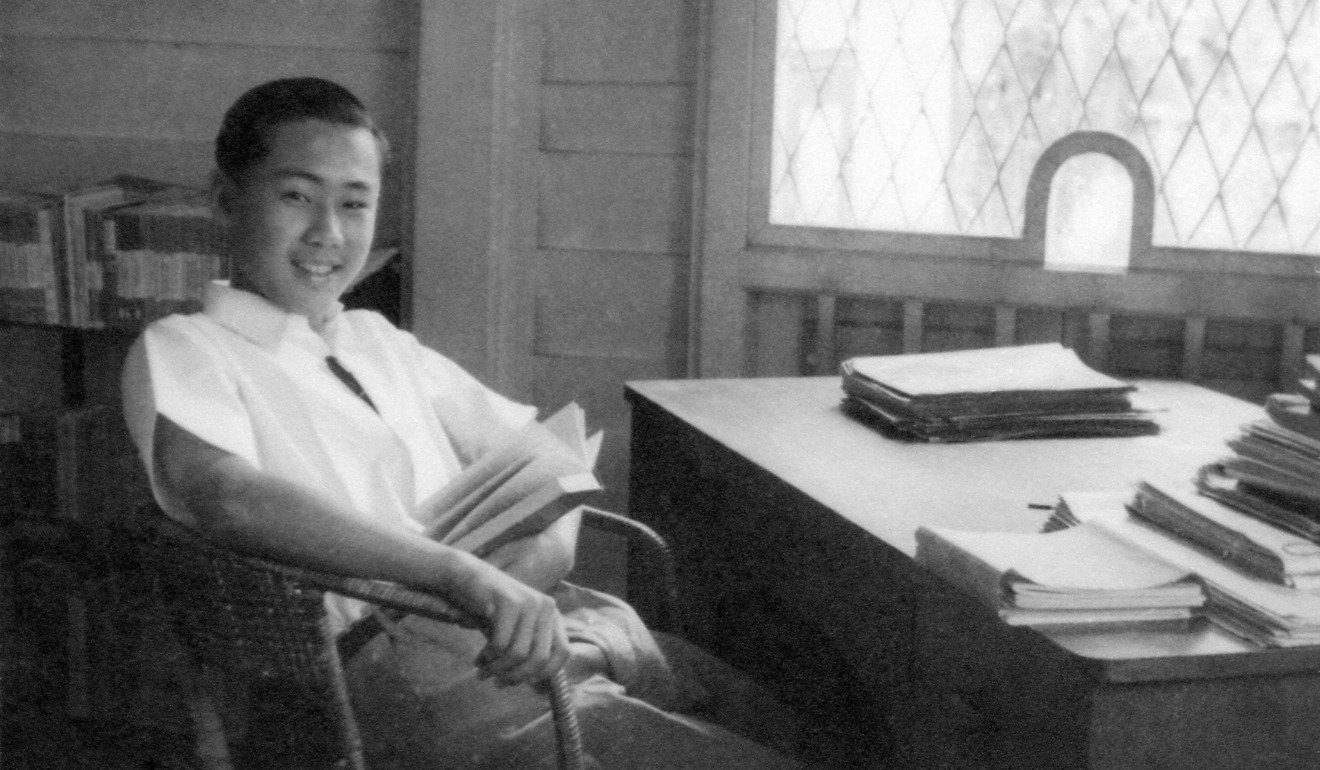
Many years later I came across studies that revealed the full scale of the disastrous inflationary spiral, but from the moment I first visited Nanjing, it was clear that inflation was a serious problem. My father admitted to me, just before he returned to Malaya in March 1948, that he was deeply worried. Unless the government could achieve a quick and decisive victory in the ongoing civil war, the country was on the brink of collapse. I remember being alarmed by the sharp difference between what he told me then and his optimistic tone the summer earlier, when we saw people who were, at least on the surface, still engaged in making Nanjing once again the great capital of a new China.
As it became clear the nationalists were losing, I could understand why so many people were saying the communists could not be worse
There was no escaping the fact that China was again in a winner-take-all bitter struggle to establish who should be the new “emperor” of a unified country.
Coming from outside China, I did not want to take sides, although I knew my mother’s preference was for a Kuomintang victory. My hope, and I think also my father’s, was that all could be decided sooner rather than later, allowing the country to get on with badly needed reconstruction after years of fighting and destruction. I had no idea which side would provide better governance, but as it became clear that the nationalists were losing, I could understand why so many people around me were saying that the communists could not be worse.
********************
“When I left for Singapore in October 1949, I did not foresee that I would never live in Ipoh again. I returned once for a brief stay during the summer vacation, but my father was transferred to Kuala Lumpur soon afterwards. It was many years later, in the 1960s, before I visited Ipoh and only for a day. I found that almost all my friends were working elsewhere. Walking the streets in New Town that day brought memories of how insecure and confused I was when I was growing up there because I was always preparing to go somewhere else. Ipoh had taught me that nothing was permanent, that change was always around the corner and that people could easily be cut off from their roots. In 1949, I spent nine months reassessing my future after seeing all our family plans for China come to nothing. That led me to weigh the sense of heritage and duty that I was brought up with against the desire for my mind to be open and free. My brief encounters with an ancient civilisation trying to modernise did not give me confidence in what China had become. I also realised that the slogans about race and nation that were being broadcast in Malaya had little appeal. What I knew I had was the love of my parents. They had given me my most precious possession, the urge to study. I longed to make new friends and hoped to earn trust and respect wherever I was destined to go. For that, I knew that order and harmony was best and not violence and war. The week before I left to study in Singapore, on October 1, 1949, Mao Zedong proclaimed the establishment of the People’s Republic of China. I was happy that China had been reunified and a new China was being born, but sad that I would not be part of what would happen there. I was sure I would always be Chinese at heart and admiring of the China that my parents and my Nanjing teachers and fellow students had taught me to love. I also wanted the best for the new China that the people in China have longed for during the past half-century. I had lived nearly seventeen years in a Malay state and eighteen months in China. Yet it seemed sometimes that I cared for both in equal parts. The pull of a plural society was great, but the cultural attraction of China in all its dimensions was deep and irresistible. I was not to appreciate until much later that there was no conflict there and that the coexistence of the two had become normal for me. And then I would recall how I struggled in 1949 to adjust to the new Malaya and the new China and wonder if my life had really begun anew during that year in Ipoh.”
‘Home is Not Here’ is already in bookshops in Singapore and Malaysia, and will be available in Hong Kong from early September. It can be pre-ordered in North America from University of Chicago Press

